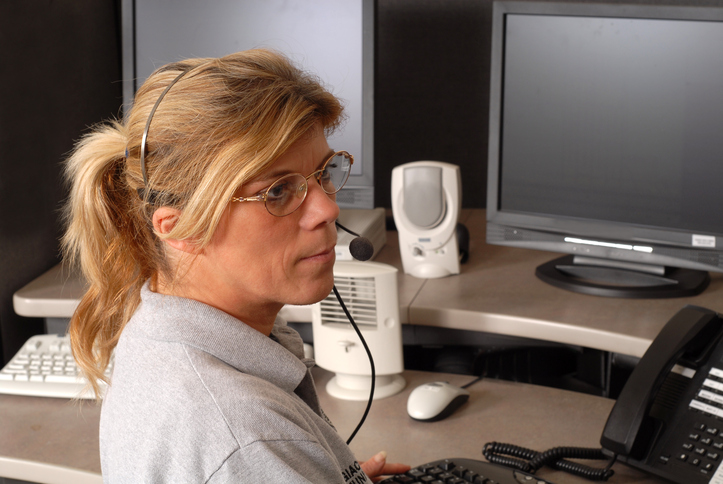
Dispatcher training can lead to many interesting careers, including working for emergency services. Many of the same skills used in truck dispatching apply equally to working to get fire, police, ambulance, and first response teams out to people who need help. For professionals who want a fast-paced, hugely important career, pursuing this kind of option is a great idea.
Curious about what a career in emergency dispatching is like? Here’s an introduction to what you can expect from this kind of work.
Grads of Dispatch Courses Who Become Emergency Dispatchers Use Multitasking Skills
Often, an emergency dispatcher will be expected to manage multiple lines of communication at a single time. These may include computer messages, telephone calls, radio conversations, and other lines of communication that the public—and response teams—may use to stay in contact with dispatchers.
Having a good understanding of how to use different channels of communication—and how to juggle them at the same time—is a great way to help ensure you have lasting success in emergency dispatching careers. You may be expected to track dispatched response units on maps while fielding a phone call from a distressed citizen, and while simultaneously keeping an ear out for important chatter coming in from teams in the field. Feeling comfortable juggling these many important responsibilities is a crucial part of working as an emergency dispatcher.
Graduates of Dispatch Courses Who Can Remain Calm & Collected Do Well in Emergency Dispatching
Some graduates of dispatcher schools who go on to become emergency dispatchers may need to interact with members of the public, some of whom may be stressed, frightened, or in danger at the time of their call. For this reason, a career in emergency dispatching is perhaps best filled by individuals who are able to remain calm and collected in stressful situations, and will be comfortable working through conversations with people who may not be fully rational or composed.
While this job is not for everybody, it is a chance for graduates to spend their career doing amazing, often life-saving work, and so can be quite rewarding. If you don’t think a career in emergency dispatching will be right for you, don’t worry. There are many other career opportunities available to graduates of truck dispatcher training, including taxi and limousine dispatching, auto repair service dispatching, and truck dispatching.
As In Other Dispatching Jobs, Emergency Dispatchers Are Often Expected to Do Paperwork
Creating a record of past or ongoing events is an important part of the work done by many dispatchers, but given the often critical nature of the work done by emergency dispatchers, is particularly important to individuals in this profession. Case records and records relating to theft are among the kinds of paperwork an emergency dispatcher may need to create and handle.

These records can be useful in many ways. For example, in the event that a an error gets made when dealing with a call, they can allow investigators to look through the history of the dispatch—when the call was received, what the responder did afterwards, what the priority of the call was—and figure out where things went wrong. Or, there might be pertinent details told to the dispatcher by the caller, and having those outlined in a report can help give reviewers a good starting point when working on a case in progress. Though doing paperwork can sometimes get repetitive, there’s no question that for an emergency dispatcher, it’s one of the most important elements of the job.
Do you want to complete dispatch courses?
Contact CATI to sign up today!
